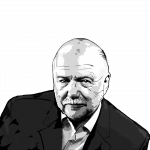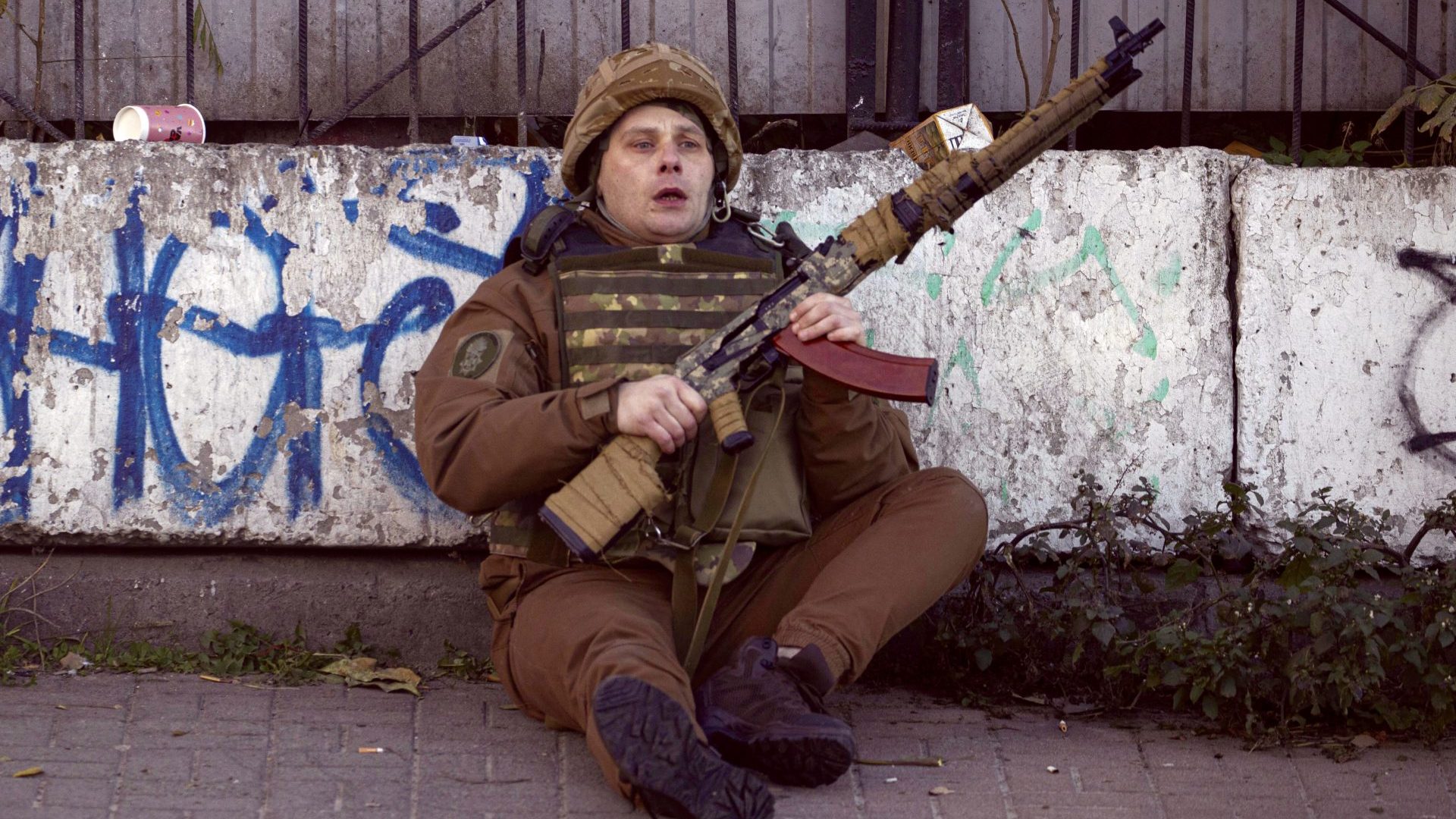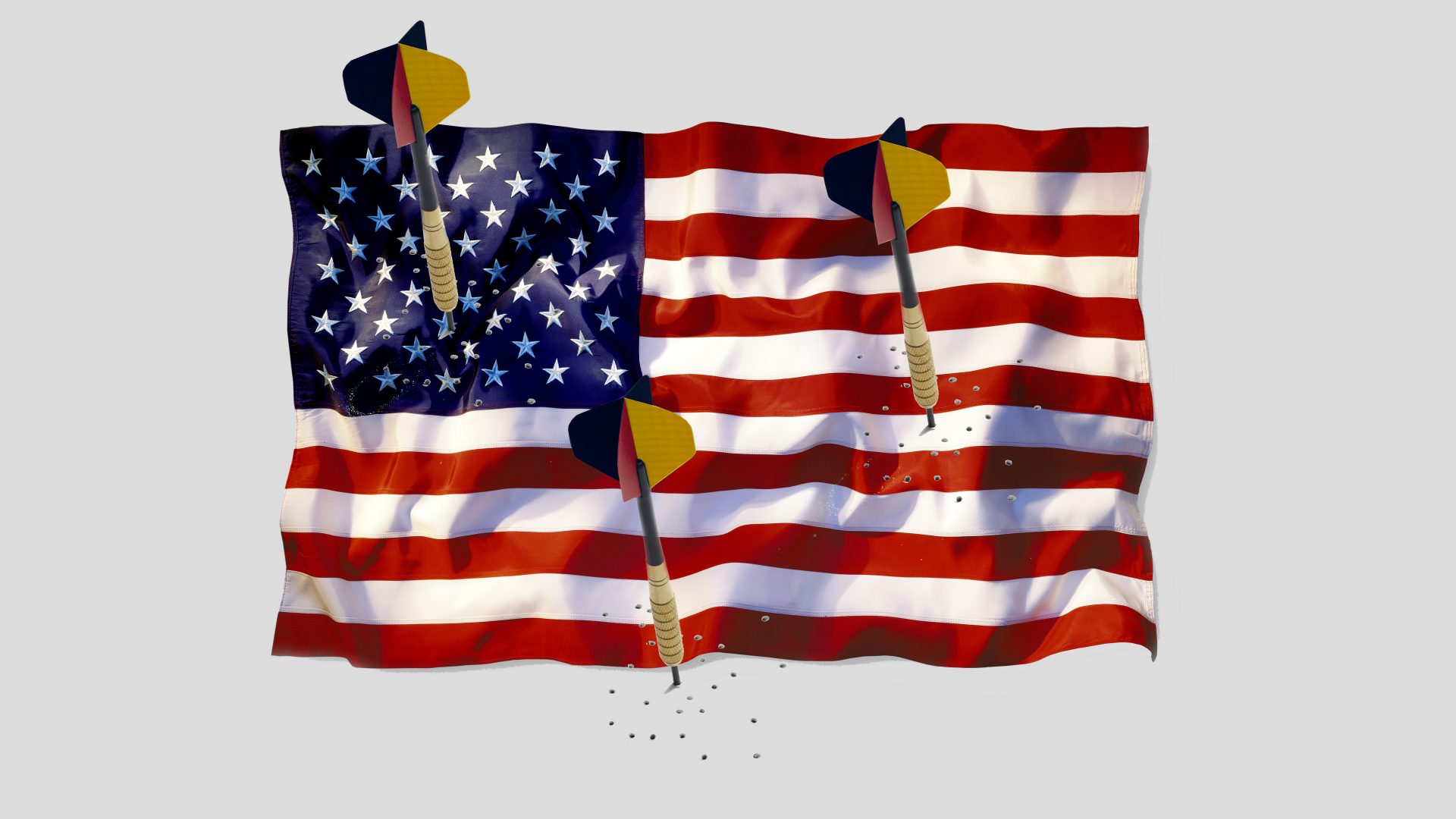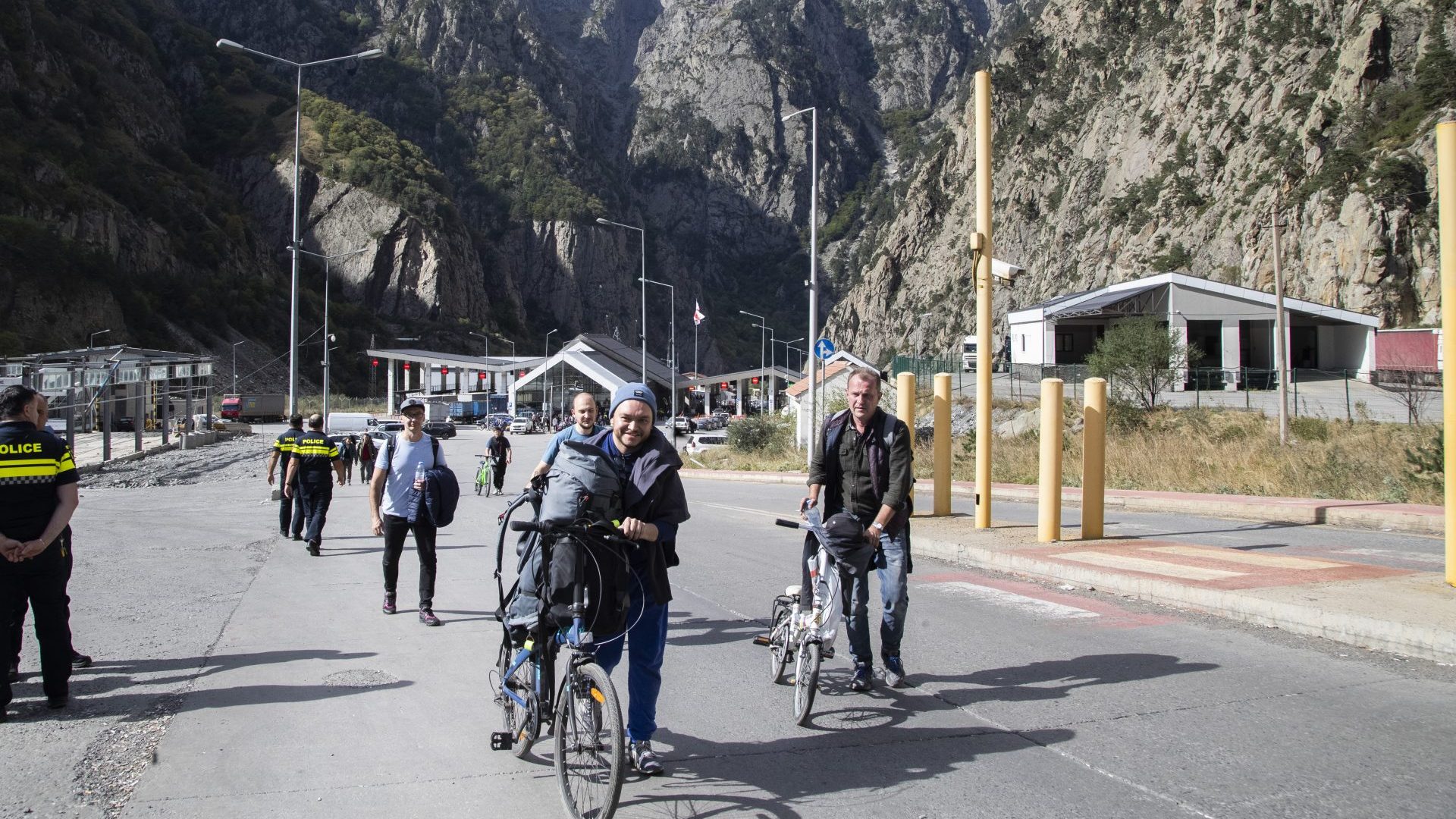What was in Vladimir Putin’s mind on October 10, the day he decided to repeat February 24 in Ukraine?
Maybe he was hoping for the same effect that the long-awaited, but still somehow unexpected moment of the beginning of the Russian aggression had on Ukrainians. To see footage of tens of thousands of cars racing to cross the border into the safety of the European Union as quickly as possible. To hear reports that the president Volodymyr Zelensky, the mayor Vitali Klitschko and other politicians were fleeing Kyiv.
Instead, Ukraine steadfastly faced another missile strike without flinching and the country stayed on its feet against seven dozen missiles, fired almost simultaneously.
While Putin seethed in disappointment, Kyiv – which had become accustomed to relative safety over the last few months – recovered from the shock. Within an hour of the rocket explosions, public utility services had begun to board up the broken windows of the Khanenko Museum, to clear the roads of burned-out cars and rocket fragments. The police visited apartments affected by the blasts to create damage reports.
Then the Ukrainian wartime bookkeeping systems kicked into action. The cost of each episode of Russian aggression is calculated. Hundreds of billions of euros’ worth of state and private property have been destroyed. One day, someone will pay.
One rocket exploded near Kyiv’s Teacher’s House, next to the monument to Mikhail Hrushevsky, the Ukrainian parliament’s first chairman. He was elected in 1918, the year parliament sat in what is today the Teacher’s House. The attack led to an outbreak of black humour for locals. “The Russian army seems to be using maps of Kyiv from a hundred years ago,” ran a popular joke.
But, of course, the majority of Kyivites were not in the mood to laugh. Among the dead from the Russian shelling was a young oncologist from the main children’s hospital in Ukraine. She had just taken her daughter to kindergarten and was on her way to work. Her car was incinerated by a rocket explosion. The head of cybersecurity for Kyiv’s police died in another car that was blown up. In total, eight people died and more than 80 sought medical help.
Between Tereshchenkovskaya Street and Vladimirovskaya Street lies one of Kyiv’s most beloved parks, Shevchenko Park. At its centre, facing Kyiv University, there is a monument to our national poet, Taras Shevchenko. A few metres away, behind the monument, there is a large children’s play area, built with money from Petro Poroshenko, who was president before Zelensky.
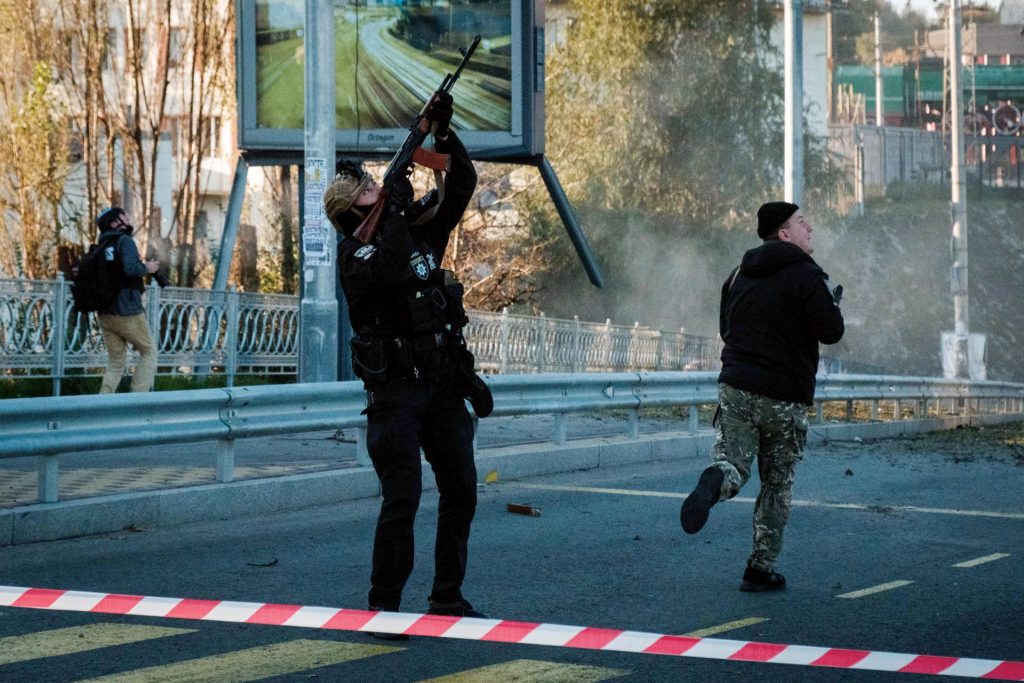
Our friend Irina Khazina, who lives on Tereshchenkovskaya Street – about 100 metres from the playground, was at home when the missiles hit. She had obediently gone to sit in her corridor when the siren sounded. Along with bathrooms, corridors with supporting walls and no windows, are considered the safest places to go if you cannot reach a bomb shelter.
When a rocket landed near the playground, the blast blew out all the windows and balcony doors in her apartment building. The ceiling of one of her rooms collapsed and the roof of the building was damaged. A couple of hours after the explosion, she packed up and moved in with her daughter, who rents an apartment away from the city centre.
Two days after the explosion, my daughter and her fiancé went to help clear the apartment of broken glass and plaster. Irina was still very upset. She was worried about leaving her home unattended with broken windows. It’s located on the top floor, and with the partially destroyed roof, any rain will mean water flooding in and ruining the massive library of her late husband, Petr Khazin, who was the first publisher of my book Death and the Penguin in Ukraine.
Irina’s daughter couldn’t find plywood to board up the windows, so she temporarily sealed them with plastic which a strong wind could easily rip out. There is hope that the city’s utility services will fix the roof soon, but it seems property owners themselves must take care of repairs inside apartments. It is very difficult to find builder-decorators at the moment.
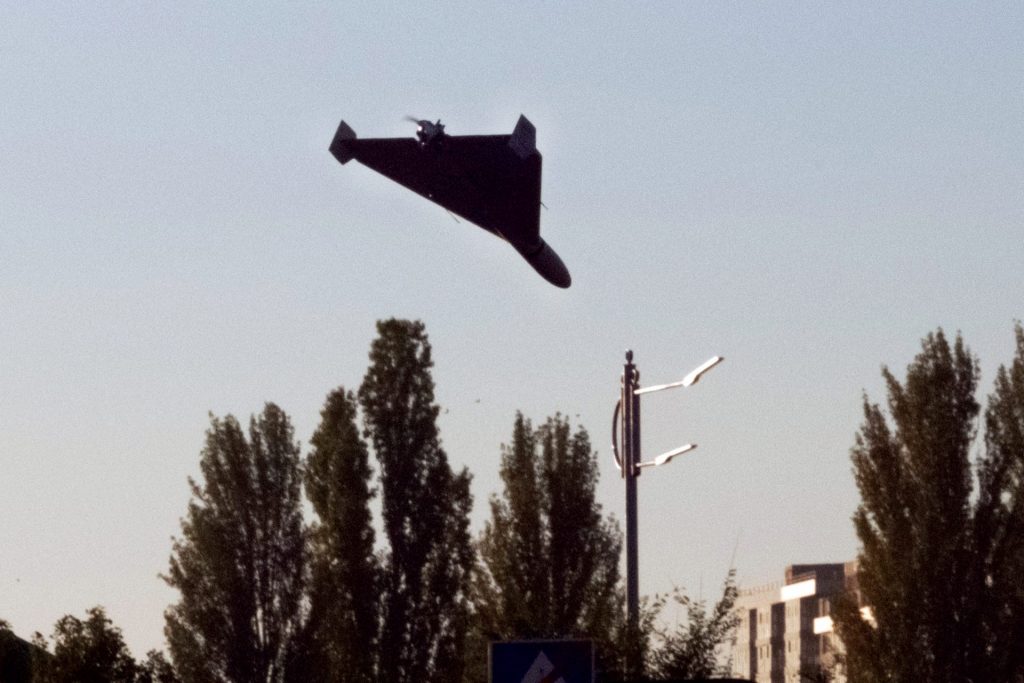
Many have gone into the army, and those who remain have too many demands on their time. After all, now they are repairing damaged houses throughout the Kyiv region – in Bucha, Borodyanka, Gostomel. Many refugees from Kyiv have returned to start renovating their homes. Those who do not have enough money to pay for the work try to raise funds on Facebook, visiting their properties occasionally to check on the situation. Others who cannot return home ask neighbours to install doors or locks on their properties to dissuade looters. In Bucha and Irpin, several local residents have already been caught stealing from apartments and houses “left open” by the war. Repairs are going on everywhere, despite repeated shelling.
Three days after the mass shelling of Ukraine, Bucha was once more the target of attacks – Iranian-made drones exploded near an electrical substation there. After the explosion of a rocket that hit right at the intersection of two major streets, Taras Shevchenko Boulevard and Vladimirskaya Street, a deep funnel-shaped hole remained in the road. It immediately filled with water from a damaged mains pipe. Within one day, the water pipe was repaired, the pit was filled up and new asphalt was laid on top. Kyivites went to photograph the site of such recent devastation so as to boast about how quickly Kyiv is able to recover from any kind of attack.
Yes, Ukraine has learned how to repair missile-damaged infrastructure quickly, but with each new attack, the problems accumulate. A plan for scheduled power outages was published by the local authorities and residents were asked to save energy as much as possible. Even foreign diplomats took up the cause to save electricity. British ambassador Melinda Simmons showed how she was working on documents using a handheld torch rather than electric light. In towns and villages throughout Ukraine, the evening shows far fewer windows illuminated than before. In Kyiv, only essential street lighting is used. Once dusk has fallen, the beautiful churches and Ukrainian baroque apartment buildings stand in darkness.
The capture of the Zaporizhzhia nuclear power plant by the Russian army has further complicated the electricity supply situation. As we move into winter, it will get harder. The heating systems in most Ukrainian apartment buildings are controlled centrally – a legacy of the Soviet past – in Kyiv there is already talk of setting the standard for room temperature at a chilly 16 degrees Celsius. But is it possible to guarantee any kind of heating in the city while Russia is constantly directing missiles at infrastructure facilities?
During a war, there are no guarantees. During the war, it is not even possible to insure yourself against injury or death. It is surprising that insurance companies that refuse to insure people because of hostilities do agree to insure pets against bullet and shrapnel wounds. True, many Ukrainians would agree that their cats and dogs should get better treatment than themselves.
When advertising insurance for pets, insurers are quick to point out that veterinary services are very expensive. Medical services for people affected by shelling are also very pricey, although many emergency operations are being carried out for free, which was not so often the case before the war.
Although Irina Khazina had been able to move in with her daughter, after the trauma of hearing missiles explode next to her house and seeing her apartment wrecked, she could not sleep for two nights. On the third day, she decided to go to the pharmacy for some sedatives. At the door of the chemist’s, she stumbled on the step and fell very badly, breaking bones in her upper and lower arm. The ambulance arrived quickly. Now Irina is in a hospital not very far from her daughter’s apartment. One misfortune leads to another.
Irina could be added to the list of victims of the Russian rocket attack of October 10. She was not injured by shrapnel or flying glass – that would have been worse – but she has suffered from this attack. Thousands and thousands of other residents of Kyiv, along with displaced people who came to the city seeking temporary shelter, can also be considered victims in the same way.
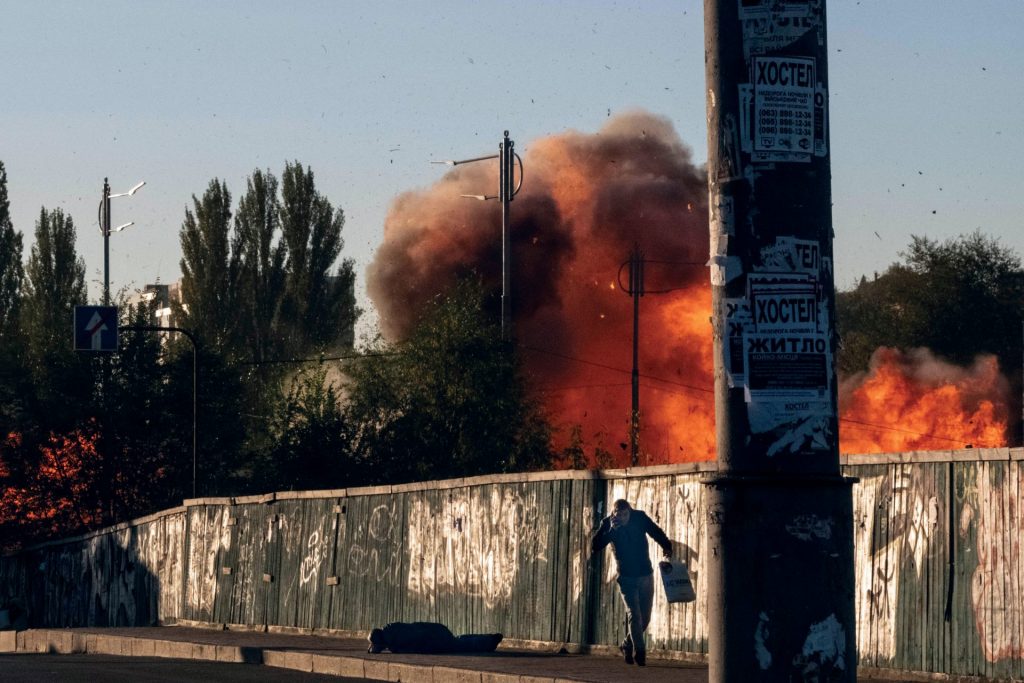
There are no official statistics, but I would assume that the number of heart attacks and strokes has increased in Kyiv since the morning of October 10. I know that Irina’s neighbour, with whom I often sat chatting about life at his kitchen table, died that day from cardiac arrest. He was not even in Kyiv. He was in Germany – a refugee. He will be buried there, unlike my other close friend, Doctor Valentin Suslov, who found shelter in Germany and died a couple of weeks ago in Mainz, near Frankfurt, at the home of an old friend who had taken him and his wife, Tanya. Valentin was cremated. On October 10, Tanya was going to start the journey back to Kyiv with his ashes so that he could be buried closer to home. The rocket attack on Kyiv forced her to cancel her trip. She does not yet know when she will make another attempt to return to Kyiv with her husband’s remains – to their beautiful, antique-furnished apartment on Gogolevskaya Street in the historic centre.
There are still many empty apartments in Kyiv. Some people who have fled from Kyiv to Europe rent out their empty apartments to refugees from Kharkiv and Kherson. At the start of the new phase of the war, rental prices in Kyiv fell by half, but then gradually they began to rise again. They have not reached pre-war levels, but rates seem to change almost daily – their volatility clearly reflecting the perceived level of danger for the city. I should say that prices do not change for existing tenants – only for new ones.
On October 10, apartment rental prices fell by 25%. But within two days, the rates were slowly increasing again. New tenants who signed rental agreements after lunch on October 10 will certainly be paying less than those who signed the day before. But I doubt many people signed contracts that day – everyone was sitting in bomb shelters or in the subway.
Since the massive rocket attack that targeted all of Ukraine’s major cities, residents of Kyiv have started reacting much faster to air-raid warnings. Even those who used to slowly finish their coffees at one of Kyiv’s many street cafés now carry thermos cups with them so that they can take their drink away to a safer place when the moan of the sirens rises into the air.
As the terrors of October 10 recede into the past, we can say that Putin’s attempt to intimidate the Ukrainians has failed. There has been no panic – unlike at the end of February when all the main roads to the west were totally jammed with cars full of refugees from all over Ukraine.
This time the roads to the west remained free. There was no mass exodus from Kyiv. Permanent residents and IDPs (internally displaced people) were quietly steadfast. They understand that the level of danger is now much higher than it has been for the last two or three months. They have become more demanding of the city authorities – insisting that the locks be cut off the doors of underground premises which were designed as shelters but had been privatised and closed up.
The city government claims that it does not have the legal authority to cut the locks off the doors of these premises. This, of course, raises questions. Bomb shelters are protected by law and cannot be privatised. The suspicion is that their status was changed in violation of the law.
In general, the people of Kyiv are satisfied with the city authorities and with their mayor, the former champion boxer Vitali Klitschko. Both his words and behaviour eloquently express the militant mood of the majority of Kyivites. He is not afraid to appear at the scene of explosions, along with firefighters and rescuers. His face always expresses determination and readiness for an instant response to each new extreme situation.
On the weekend after the October 10 missile strikes, Shevchenko Park was again full of relaxed families taking selfies against the autumn colours and also inside the deep pit, next to the children’s swings, which was left by a drone at the start of the week. This proved to be a glimpse of things to come.
On Monday morning, another vicious attack took place. An air-raid warning gave residents time – about 10 minutes – to make it to their chosen safer place and then the drones arrived, swooping over the city’s roofs before hitting a historic four-storey apartment building near the circus and a high-rise office block. As I write, they are tallying up the dead and wounded.
Despite all this, I would like to believe that Kyiv will continue to stand up to the absurd pressures that Putin tirelessly forces upon its inhabitants. Kyivites know that they are not alone. They witness with awe and pride the fighting spirit of cities, towns and villages throughout Ukraine.
Andrey Kurkov is the author of, among others, Death and the Penguin

